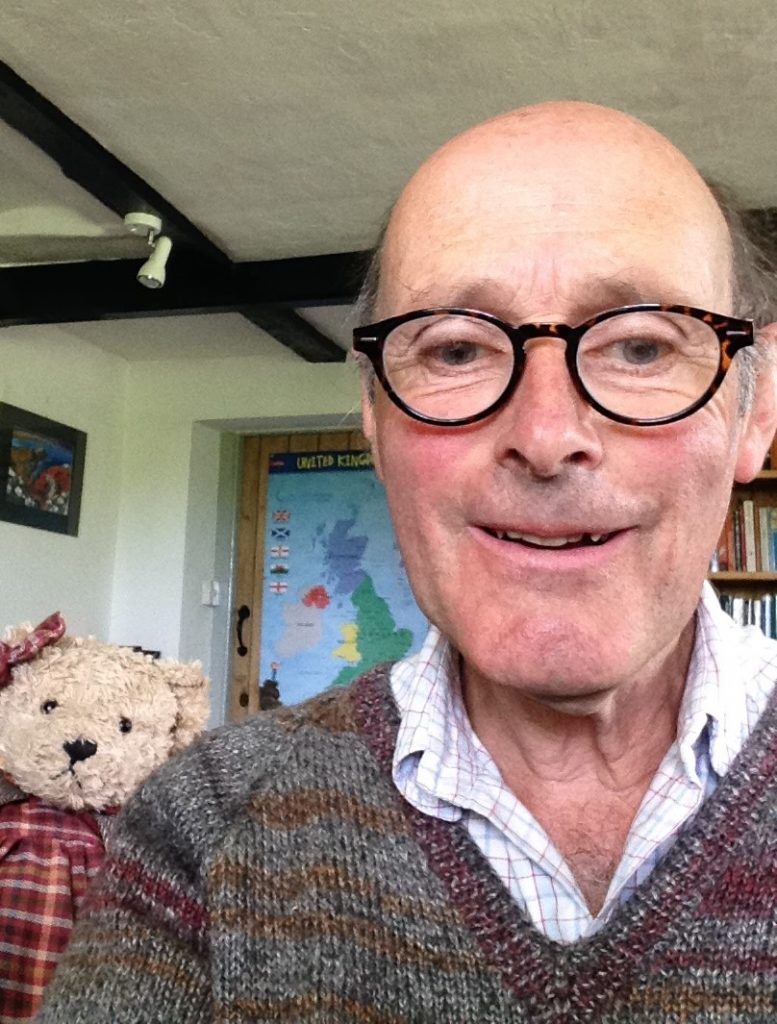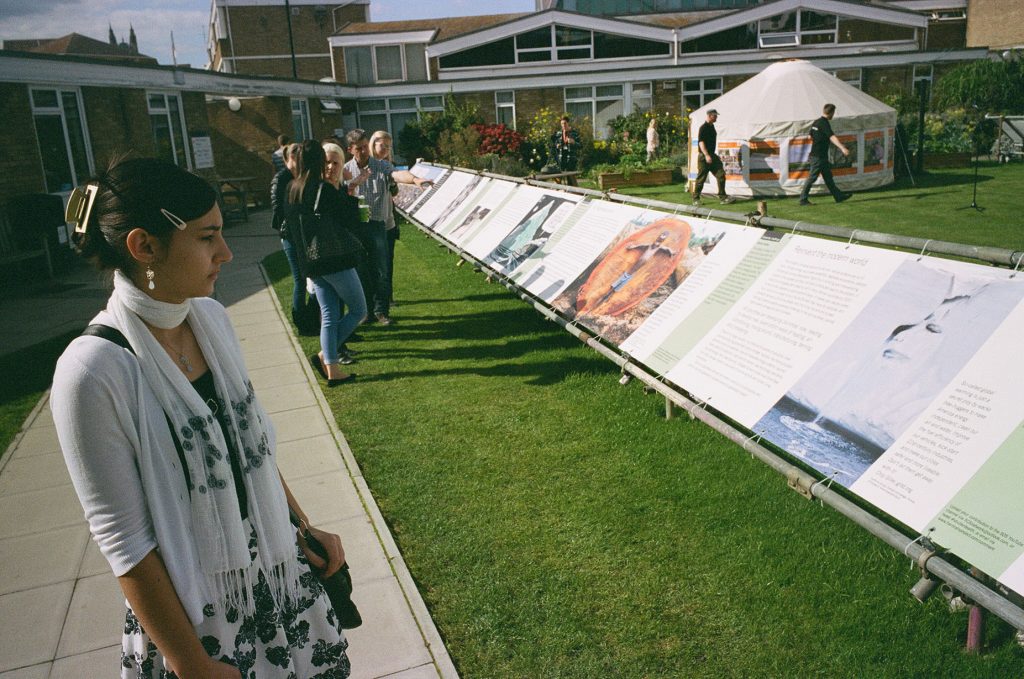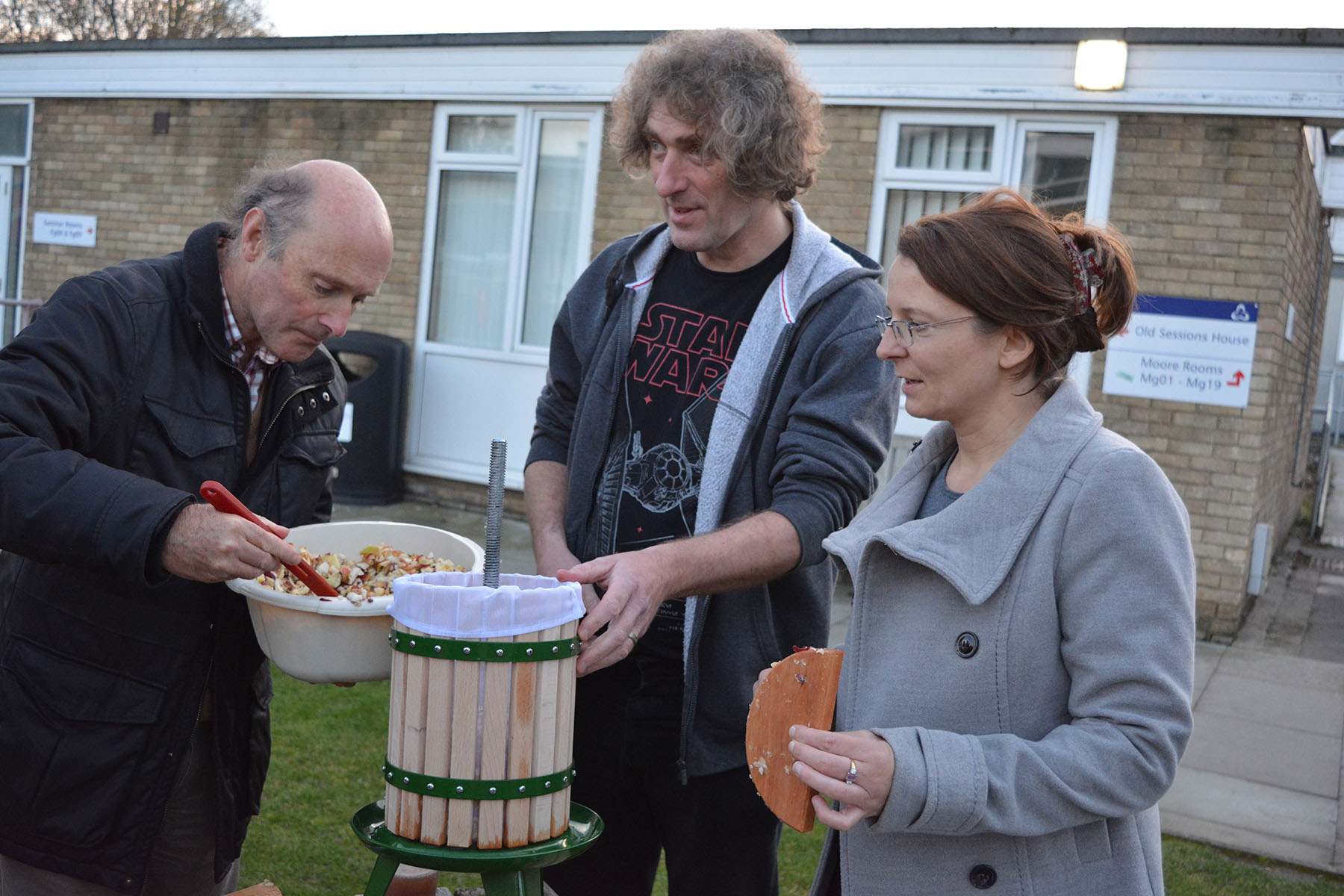Never fear, another instalment of Heritage & History is here! This post is a piece that is all about Christ Church’s sustainability journey and the conversation will be with Visiting Reader, Dr Stephen Scoffham. In this post, I will be asking Stephen about the history of sustainability at Christ Church and hopefully provide an insight about how sustainability found its feet at CCCU. I hope you find this an interesting read and you learn something new!
A little about Stephen…
Stephen is a Visiting Reader, which means he isn’t employed directly within the University, but he supports its work because he is passionate about sustainability and embedding it into our curriculum and future. Stephen has been at Christ Church for over 25 years, and in that time, he was especially involved in primary initial teacher education as well as promoting sustainability across the University. He is also involved in primary geography education nationally, including the creation of school atlases and being the president of the Geographical Association – an association for geography teachers.

When Stephen left Christ Church originally, he still wanted to be able to work with the Sustainability Department and being a Visiting Reader allowed him to do that. He was able to actively engage with the sustainability team and its work but was able to go above and beyond what the team are able to undertake. Since being a Visiting Reader Stephen has also given guest lectures in the University and has provided advice and consultancy with the team, being involved in ongoing conversations that generate ideas.
He has a wealth of knowledge and experience, so let’s dive right in…
What does sustainability mean to you?
Fundamentally, sustainability is the development of global awareness of planet Earth as the only home that humanity will ever have. It is also about seeing the world as a global entity, rather than something that pertains to individual countries. This sense of interconnectedness has really emerged throughout my career, and I have seen it grow, evolve and change. During my working life, people have begun to see the urgency of the global environmental crisis and how, at current rates, we are using the Earth’s resources at an unsustainable rate, one which simply cannot be maintained for much longer.
Since I work so much in a university environment, I am very aware of how important students are to this movement and its success. Our students are the future leaders and the minds that will be shaping tomorrow, so it is crucial that we educate them on matters of sustainability, so they realise how urgent the issues are and change how they live and push for change in the businesses that they work in through the power of their voice.
To me, sustainability means people learning to live within planetary limits and balancing that with the social dimension of sustainability to create a safe and just place where people can flourish.
Where and when did Christ Church’s sustainability journey begin?
Sustainability at Christ Church really took off around 2010 and was a perfect example of everything coming together at the right time. The Sustainability Office was born out of the combination of key figures within the University all uniting under the common goal of building a Sustainability Department. There was grassroots support from the staff and a few students, in addition to the voices of the trustees and governors who also supported the idea of having sustainability at Christ Church. The Vice-Chancellor of the time, Robin Baker, saw that this was the direction that the University should be heading in, so sustainability at Christ Church started to become embedded.
How has the sustainability team grown/changed/adapted since the journey began and the team formed?
The aim with any department that has a specific motivation is to keep their aims on the wider university agenda. With sustainability, when the team formed, there was a lot of momentum from outside forces in terms of increased information about environmental issues. The difficulty for a sustainability team in a university context is that universities are becoming increasingly like businesses so attracting students and balancing the books has to be their key concern. When the team formed, it was a few key people that really drove it forward and although the context was favourable, there were a handful of people that had to put in a lot of work above and beyond their job description to get it off the ground.
A key moment was in 2015, when the team invited Mark Edwards, an acclaimed environmental photographer, to put on an exhibition on why students and universities could and should get involved with sustainability at university and then beyond. The exhibition took place on the lawn outside Fisher Tower and was opened by Michael Morpurgo, the children’s author.

We also realised all along that it was crucial to encourage the University to embrace sustainability at an organisational and managerial level, which I am pleased to say that we have been successful in, with sustainability representatives being involved in all the necessary committees. Sustainability is now structurally embedded at a level where it is permanently engrained into the fabric of the University.
For example, sustainability is mentioned in the first sentence of the university Mission Statement. More recently, Christ Church has signed he Sustainable Development Goals Accord and the Global Climate Letter. There is still work to be done in terms of accountability but we are at the forefront of universities in sustainability, so I hope to see our good work continue,
How would you say it benefits the University and its students to have a department like this?
Personally, I think that students graduating today need to have engaged meaningfully in sustainability in their course in order to be counted as having an up-to-date education. I believe that education is key in our response to planetary issues because it is so fundamental in shaping the minds of the next generation. Part of the Sustainability team’s role is to encourage tutors to ask students challenging questions like ‘What sort of world do I want to live in?’ and ‘How can I take my role in the world more seriously in the context of sustainability?’ Both these questions pose real challenges to the mindset that society encourages us to have, which is rooted more in selfish action rather than thinking about our place in the world.
With the sustainability team becoming the new Academy for Sustainable Futures, what do you envision the future of sustainability at Christ Church to look like?
The overall intention of having a sustainability team is to move education from the ego-centric to eco-centric. This involves moving people from the mindset of ‘What can this experience do for me?’ and ‘What can the world do for me?’ to ‘What is my place in the world?’ and ‘What can I do for it?’
Christ Church has established itself as a leader in this field and I would like to see that continue as well as the Academy for Sustainable Futures getting involved more on different levels; in areas such as building our research profile and growing our commitment to embedding sustainability into the academic work curriculum.
I would like to see students get excited about sustainability and learn about the opportunities that they have available to them and what they can do to be involved. Such a large part of our learning is communal and if the University were to adjust its learning technique to adopt that idea, that would be a massive help. The time for an ‘ecological university’ has come and I would like to see the University recognising the need for both a local and national connection and get involved with local organisations to continue to move sustainability up the agenda to become the norm.
Any parting thoughts?
Engage. Please engage. If you’re already engaged with sustainability, encourage your peers, colleagues and whoever else is in your life to engage as well. Don’t think it doesn’t matter to you because true engagement enriches everyone’s lives, and environmental issues are a burden no one individual should carry alone.
by Fran Allen, SGO Projects Officer #learningforthefuture in conversation with Visiting Reader, Dr. Stephen Scoffham
 Sustainability
Sustainability Felicity Brambling-Wells
Felicity Brambling-Wells 962
962



A very interesting article, Stephen is such an asset to CCCU, and the wider community.